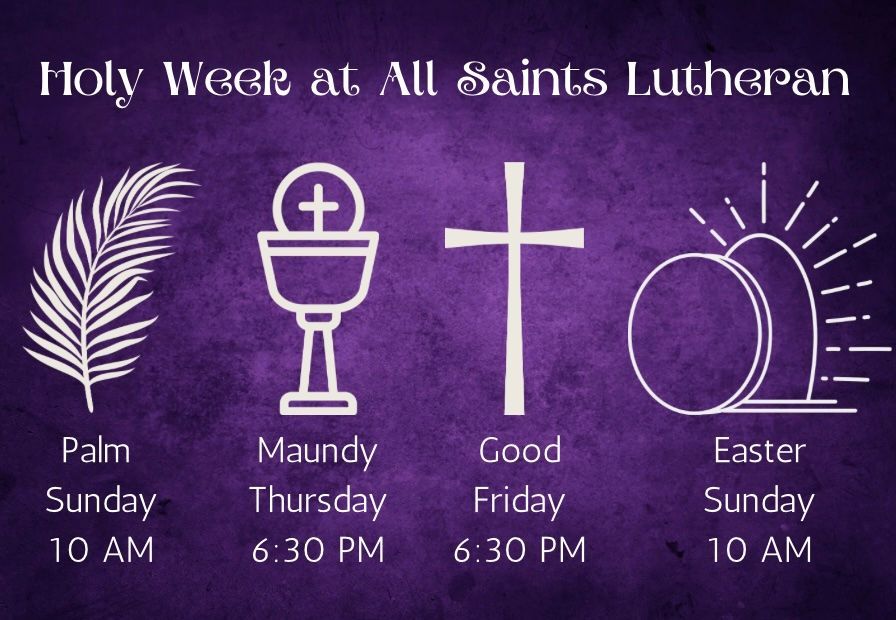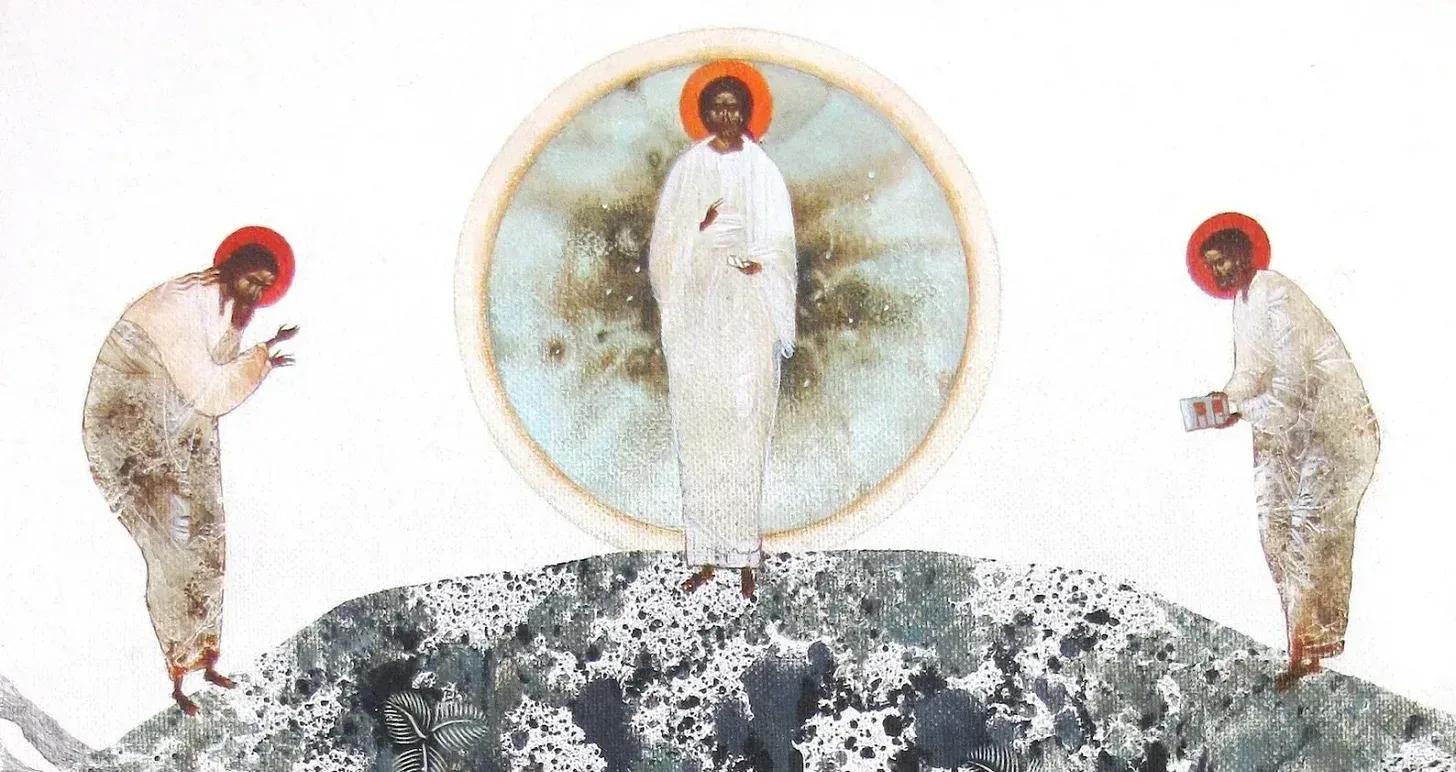Eighteenth Sunday after Pentecost, September 22, 2024
I remember
when Jennifer was working on her teaching degree
she told me that one of her professors had advised
never to argue with a child,
“because they have all day
and you don’t.”
There is a pragmatism here
that is thinking of classroom management,
pacing, state standards,
and those ever-looming state tests.
Teachers are busy,
even when school is out,
planning and preparing,
gathering resources,
submitting reports,
recording grades,
and meeting professional standards
for continuing education
and mandatory trainings.
Teachers don’t have time
to argue with a child.
But on another level,
this is a lesson in maturity.
Arguing with a child
is not productive.
You are likely able to comprehend
more information and logic
than this child is developmentally capable of,
and it will not be long
before the argument on the adult’s end
lands briefly on “because I said so,”
on its way to the realm of “unh huh!”—"nuh uh!”
Maybe this is why
an article on CNN.com this week
tried to answer the question
of why people seems so annoyed
by children.
The article suggested that
as fewer people have their own children
and therefore have less interaction with children
the less we understand their behavior
and the more we tend to avoid children.
I would suggest
that the less we are exposed to children
the easier it is for us to pretend
we have actually grown up.
Sure, we can vote,
buy a drink,
and rent a car;
we might grunt a little when we stand from sitting,
prefer our restaurants ‘not too loud,’
can’t tell if our arms aren’t long enough
or we need a new prescription,
and know the balance of our 401k,
but most of us,
deep down
have been playing dress up
for a very long time
and hoping that no one would notice.
Children open up
in most of us
a younger place,
and if we haven’t paid this inner child much attention,
they have likely not matured very much
in the time since
we last acknowledged they were in there.
And when that first grader,
all freckles and missing teeth,
picks a fight with you,
or points out your love handles,
or calls you ‘mean’ for holding a boundary,
you suddenly have to deal with
the reality of your vulnerability,
and who was time for that?
Best to avoid the kids all together, then.
All of our readings today
seem to point toward this level of vulnerability.
Jeremiah is beset by enemies
plotting to kill him,
and he wouldn’t have even known
if the Lord Almighty
hadn’t been the one to tell him
people were talking behind his back.
James speaks to a community in conflict,
identifying the source of this in-fighting
as their unwise behavior—
that is, their immature behavior,
wanting what they don’t have,
and resorting to violence,
even murder,
to get what they want.
James tells them to be wise,
or to grow up,
and act like the children of God.
The Gospel of Mark
gives us a story
that begins with Jesus predicting his death
and resurrection,
again,
and calls the disciples
to stop jockeying for power
and to stand in solidarity
with the most vulnerable among them.
And most of us
can’t stand the thought
of this kind of vulnerability.
It sounds like weakness,
this gentle Jesus,
the defenseless Son of Man,
bound for the cross
with a child on his lap.
But this is the difference between a child-like faith,
and a childish faith.
A childish faith wants a strongman,
someone who can vanquish the monsters under our bed
instead of telling us “Do not fear.”
A childish faith wants a rich and powerful Jesus
who can guarantee us all our hopes and dreams
instead of the meek and humble Jesus
who teaches us to ask and trust
for our daily bread.
A childish faith wants a conquering warrior Jesus
who can make us great,
who can bring back the way things used to be,
who can help us avoid grief and death,
instead of a crucified and risen Jesus
who asks us to follow him.
But Jesus is calling us to a child-like faith
of vulnerability and care,
of growth and maturation,
of wisdom, gentleness, and peace,
of death and resurrection.
Death and disaster cannot be avoided.
Our hope is not in rescue,
an escape from all the bad things that could happen to us.
Our hope is in resurrection,
the redemption of all the bad things that could happen to us.
A child-like faith
is that of resilience,
a faith that can endure and mature,
a faith that can become gentle
and grow wise,
a faith that does not attempt to avoid death,
but hopes in resurrection.
As Jesus took a little child
and placed it among the disciples,
so the Spirit has centered our attention
on a child here today.
We don’t ask what she can do for us.
We don’t invite her to this water to add to our rolls.
We don’t charge the family a fee,
or suggest a donation.
We don’t claim her as ours;
We claim her as God’s.
We make promises
that we are going to be the kind of community
that centers the most vulnerable.
We are brought back to this font
where most of us first came as children,
and we are reminded to return to this child-like faith
as many times as it takes.
We are called to support each other
as we continue to grow in wisdom,
gentleness,
and righteousness.
We come to this font to remember
that we are all the children of God.
We can come away from this water
with a childish faith
that death and grief can be avoided,
a faith that lusts after power and prestige,
that is obsessed with getting revenge,
and believes in a strongman to come and save us.
We can have childish faith
in make-believe.
Or we can believe.
We can come to this water
over and over and over,
as many times as it takes,
to cultivate a resilience,
a child-like faith,
a faith that can endure and mature,
a faith that can become gentle
and grow wise,
a faith that welcomes the weak
because we are acquainted with our own weakness,
a faith that welcomes the sinner
because we have been honest about our own sin,
a faith that centers the vulnerable
because we have embraced our own vulnerability,
a faith that does not attempt to avoid death and grief
because we have accepted our own death
and placed our hope in the resurrection.
There is another reason
that you should never argue with a child;
you cannot argue and welcome
at the same time.
If we cannot welcome the most vulnerable—
or that which is most vulnerable in us—
we cannot welcome Christ.
To welcome Christ
is to welcome the child
and the child-like in each of us.
Then the child
will have become the teacher.
Amen.










